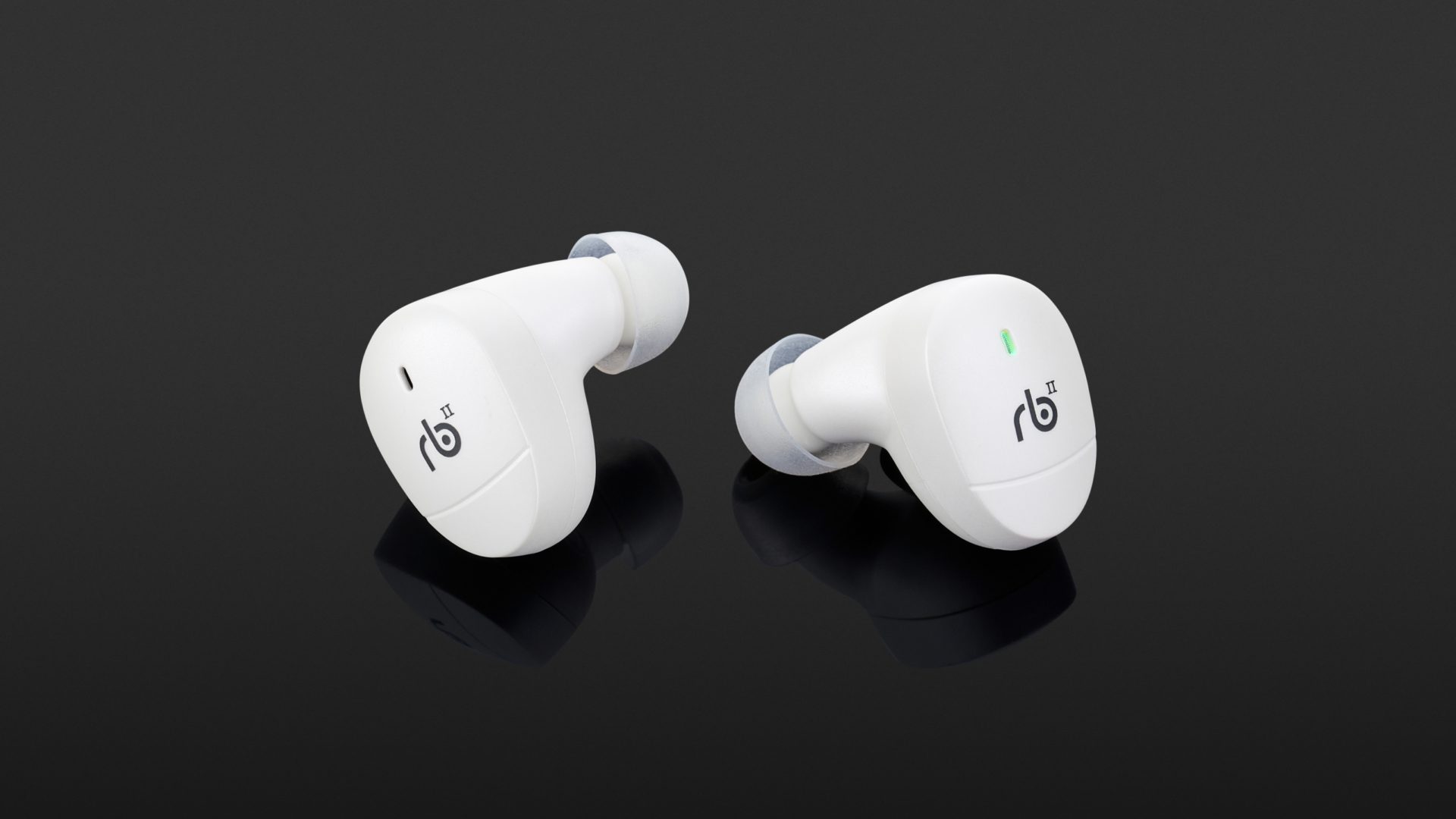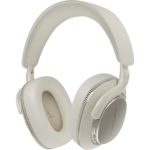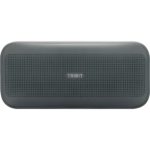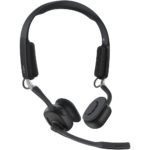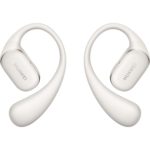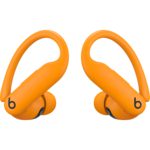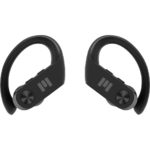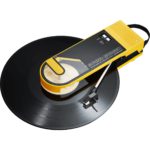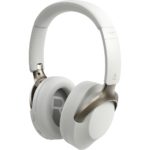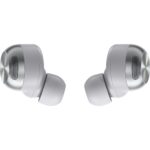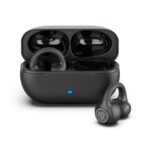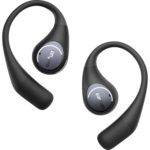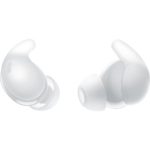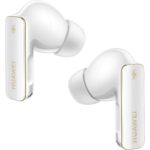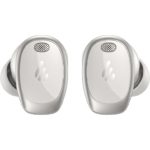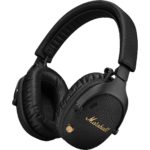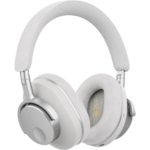If you’re looking for inexpensive true wireless in-ears for everyday use and can do without an app connection with customisation options, then you should take a closer look at the Fun Generation Rock Buds II. The full, warm sound impressed us with good all-rounder qualities and has the necessary assertiveness for mobile use. There was also nothing to complain about when it came to voice quality when making phone calls in a relatively quiet environment. These lightweight earpieces offer a very comfortable fit, have long-lasting batteries, and score points with an extremely compact charging case.
- Very comfortable fit
- Lightweight, extremely compact format Bluetooth 5.2
- Speech intelligibility during phone calls (in quiet surroundings)
- Case can be charged via USB-C port or wirelessly via Qi
- Supports high-quality audio codecs (AAC and aptX)
- Handset without charge indicator
- Occasional Bluetooth dropouts
Like the Fun Generation Rock Buds, the second version of their wireless in-ears also aims to offer good sound at a low price, with high-quality audio codecs available in aptX and the AAC format. Voice quality during phone calls has been improved, especially as the new Rock Buds II come equipped with touch controls, while the case supports wireless charging via Qi.
The ergonomically shaped earpieces are exceptionally light at just four grams per side and fit snugly in the ear, so the Rock Buds II are barely noticeable when worn and offer excellent long-term comfort. The small housings are fully embedded in the ears and do not protrude, which makes it possible to wear a cap and promotes a stable fit. The charging case also seems extremely compact compared to many competitors, weighing in at just 35 grams and easily fitting in a trouser pocket.
Battery life
In our battery test, the Fun Generation Rock Buds II were certified as having good endurance values, with these lightweights achieving a runtime of six hours at higher volumes. In total, these in-ears could be fully charged twice in the case and once more with a remaining capacity of 80 minutes, resulting in a total runtime of 19 hours and 20 minutes. However, these earphones do not have a charge level indicator, so it was not clear whether they were being charged and when the charging process was complete. According to the manufacturer, the charging time is 60 minutes, which our results confirmed. The case, on the other hand, can be recharged either by cable via the USB-C port or inductively via Qi. If the included USB-C to USB-A charging cable is used, the available LED signals after one hour and 50 minutes that the battery reserve has been restored.
Operation
The Fun Generation Rock Buds II support Bluetooth standard 5.2 as well as single-sided use in single-mode and offered a range of eight metres within an urban environment, although occasional dropouts occurred. Pairing the earphones can be done directly by opening the case, which turns the system on and puts it into pairing mode while putting them back into the charger turns the in-ears off. If the battery reserve of the case is empty after the third charging, the earphones can also be switched on manually by holding the touch-sensitive surfaces; this function has been well thought out. However, switching off via the touch surfaces is not possible.
Once a wireless connection is established, a single tap controls playback, which can be done on either side, and this is also used to answer phone calls, while calls can be ended or rejected by double-tapping. A double-tap can also be used to select a track by moving forward on the right and backwards using the left headphone. Voice assistants can be called up by tapping three times. There is also a volume control, which can be reduced by holding the left headphone and increased with the right headphone, although this works rather erratically. In this respect, the playback level can be quickly lowered or turned up as needed but not necessarily finely adjusted. In addition, the Rock Buds II have a gaming mode that can be activated or deactivated by tapping four times; this improves the synchronicity of picture and sound when using the standard audio codec SBC.
Voice quality during phone calls
Compared to their predecessor, the Fun Generation Rock Buds II have significantly improved the intelligibility of the user’s own voice, which was impeccably amplified. Only a loud environment can impair the presentation, as background noises such as street noise are not actively filtered, but this was not a shortcoming in view of the price range.
Sound
The powerful tuning of the Fun Generation Rock Buds II seems coherent and has a pleasant basic warmth, which harmonises well with a wide variety of genres. The bass reproduction reaches down surprisingly deep and has substance even in the lower ranges without getting bogged down in bass-oriented productions. The substructure has a particular fullness and provided a rich reproduction with a fun factor but didn’t sound too powerful or overloaded. The full-bodied midrange also provides momentum, seemed assertive when used outdoors, and brought out voices well, while details such as ambient sounds come to the fore when listening to music in a relaxed atmosphere while sitting on the sofa. The reproduction does not seem demanding, exhausting or even aggressive; rather, it sounded good-natured in a positive sense, and that also applied to the upper registers. Only at high volume levels, which these headphones are quite capable of, did the treble imaging sometimes seem a bit sharp. However, there was no tendency towards unpleasant sharpness or harshness.
Technical specifications
- Ear couplingIn-ear
- Typeclosed
- Transducer principledynamic
- Frequency response (headphones)20 - 20.000 Hz
- Weight without cable4 g each, case 35 g
What's in the box
- Eartips in three sizes (S/M/L)
- USB-C to USB-A charging cable
- Charging case
Special features
- BT codecs: SBC, AAC, aptX
- BT version: 5.2
- BT profiles: A2DP/HFP/HSP/AVRCP/SPP













